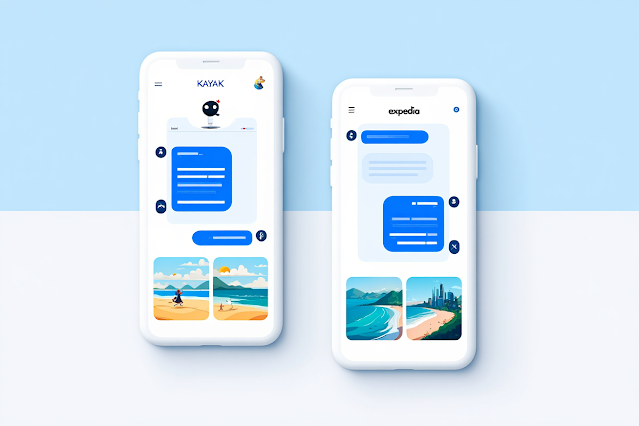The New Frontier: Agentic AI in Travel
When consumers saw the first wave of AI-powered chatbots, one clear use case emerged: travel. Companies like Kayak and Expedia are now accelerating efforts to develop agentic AI—autonomous travel agents that go beyond simple Q&A, handling full trip planning and bookings.
Both giants highlighted this shift at VentureBeat’s Transform 2025 conference
Kayak: Chat‑Based AI with Search + Tools
Matthias Keller, Kayak’s Chief Product Officer, unveiled Kayak AI, a chat-centric experience that integrates:
-
ChatGPT for conversational planning
-
Web search engines
-
Specialized tools for booking flights and hotels
Kayak aims for “a travel agent that is always available… doing all the heavy lifting” in planning personalized trips.
Expedia: From Instagram Reels to Real Trips
Expedia CTO Ramana Thumu emphasized the balance the company seeks between user control and AI autonomy. Their headline feature? Trip Matching, launched in June for U.S. customers. It enables users to:
-
Send a travel-related Instagram Reel to Expedia
-
Receive a fully designed, bookable itinerary with flights, hotels, and activities
This taps into social media’s massive inspiration-driving power, all backed by Expedia’s 30-year destination database.
Why It Matters: From Dreaming to Doing
These "snacker" travelers—browsing for ideas without booking—are a major target. AI agents can convert casual interest into real bookings by bundling flights, hotels, and day plans in one go. Kayakians claim their agent can even answer detailed questions like “which hotels have infinity pools?” thanks to ChatGPT-style nuance.
Challenges to Overcome
-
Data fidelity & personalization
Experience shows that basic prompts like 2-week Thailand itineraries may feel generic and contain minor errors. But more targeted trips (e.g., foodie guides to Edinburgh) perform better. -
Balancing autonomy vs. control
Expedia acknowledges the need for the agent to take initiative, but not override user preferences. -
Reliability
Users expect accuracy in details like location names, schedules, and availability, requiring robust real-time data under the hood.
The Bigger Picture
AI travel agents bridge the gap between inspiration and execution, streamlining the journey from “saw this jaw‑dropping beach Reel” to “booked my stay.” But the tech is still maturing. Early feedback highlights both impressive automation and areas needing better context or precision.
For travelers, this means less friction—but still a role for human judgment. Users should verify AI-suggested itineraries and details until the technology proves consistently reliable.
What’s Next?
-
Broader platform support: Expect similar tools across other social media and messaging apps, as noted by Expedia’s marketing chief.
-
Enhanced toolkits: Real-time weather, local deals, and experiential add-ons could be woven into AI planning.
-
Improved AI accuracy: Refinements will focus on factual correctness, relevance, spelling, and cultural sensitivity.
✈️ Final Take
Kayak and Expedia’s AI agents are a bold leap toward full automation in travel planning, transforming clicks and scrolls into bookings. Though still in early-stage rollout, these tools signal a future where dreamy social media discoveries become real journeys, crafted by intelligent assistants. For now, they augment—not replace—human intuition and due diligence.

